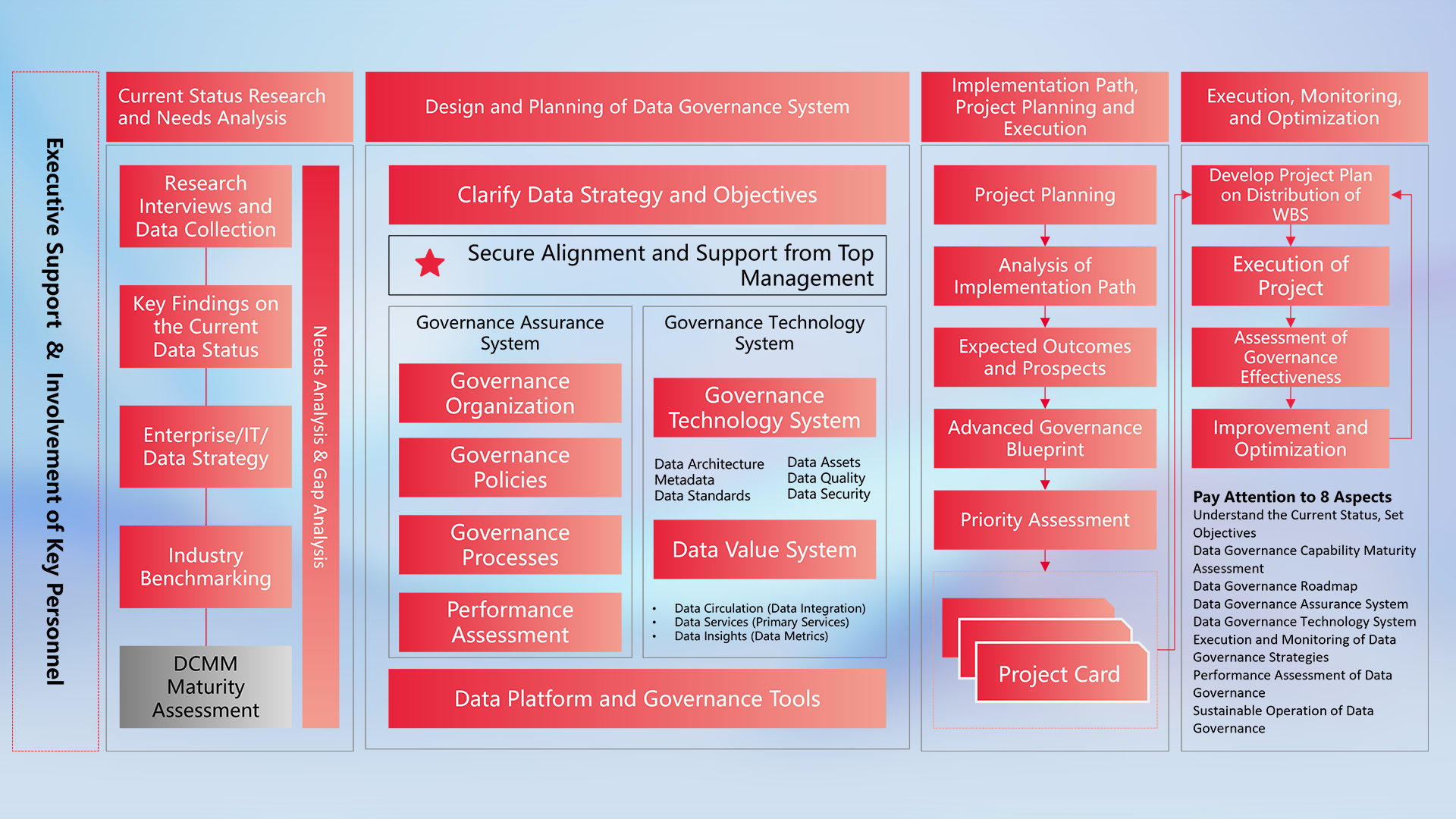Comprehensive asset inventory implementation: Able to identify and categorize all data resources of the enterprise, establish a comprehensive data asset catalog, ensure full control over data resources, and lay a solid foundation for effective management and utilization of data assets.
Implementation of data asset standardization: Able to develop and implement unified data standards, standardize data definitions and formats, eliminate redundancy and inconsistencies, achieve data consistency across departments and systems, and provide a standardized data basis for the enterprise.
Data quality monitoring and enhancement: Able to use efficient detection tools and methods for data cleaning, verification, and monitoring to enhance the accuracy, completeness, and consistency of data, solve data quality issues, and ensure the reliability and efficiency of business decision-making.
Construction of data application system: For specific industry scenarios, able to build a data application (data indicator) system to ensure that key business data accurately reflects the operation of the enterprise, support the decision-making layer for in-depth analysis and scientific decision-making, and promote data-driven business growth and optimization.
 Smart Vision
Smart Vision Shenzhou Kuntai & Smart Vision Integrated GenAI Suite
Shenzhou Kuntai & Smart Vision Integrated GenAI Suite Data Asset Accounting
Data Asset Accounting Data Security Control Platform
Data Security Control Platform Shenzhou Yanyun Integrated Solutions
Shenzhou Yanyun Integrated Solutions Cloud Management Services
Cloud Management Services AI Computing Power Servers
AI Computing Power Servers Storage Products
Storage Products Low-Altitude Solution
Low-Altitude Solution RaaS Operation Service Solution
RaaS Operation Service Solution





